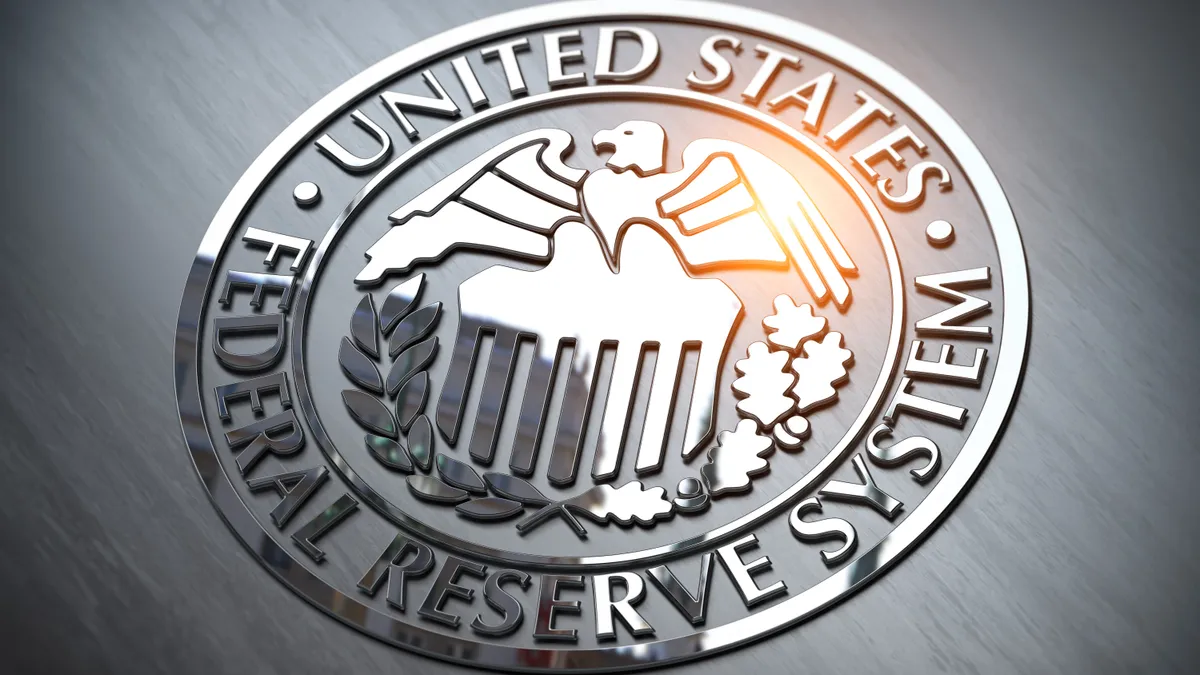Dive Brief:
- CFOs rank monetary tightening as their leading business concern, with 40% of companies cutting spending due to higher interest rates, the Federal Reserve Banks of Richmond and Atlanta found in a survey.
- “Monetary policy appears to be further dampening business spending and hiring plans,” according to John Graham, director of the CFO survey and a finance professor at Duke University’s Fuqua School of Business.
- Increases in the benchmark interest rate rose to the top CFO concern for the first time in more than a decade, nudging challenges in hiring and retaining workers into the second spot, according to the third-quarter CFO survey. Inflation and weak demand are also big concerns.
Dive Insight:
The Federal Reserve on Sept. 20 held the main interest rate at a 22-year high ranging from 5.25% to 5.5% while affirming its pledge to quash inflation and signaling that a quarter point hike is possible as early as its next two-day meeting ending Nov. 1.
The central bank will likely increase the federal funds rate to 5.6% by December before trimming it to 5.1% by the end of next year, a half point higher than a 4.6% estimate in June, according to median projections by Fed officials released after the Sept. 20 meeting.
The Fed’s most aggressive tightening in four decades has pushed up borrowing costs, with the yield on the benchmark 10-year Treasury note rising to 4.6% Friday from 3.7% at the start of 2023.
If interest rates persist at the current level for 12 months, the proportion of companies that will trim capital and non-capital spending will rise to about half from 40%, according to the Fed/Fuqua survey.
Although worried by the headwinds from interest rate hikes, CFOs see the business landscape brightening next year across several fronts, according to the Aug. 21 to Sept. 8 survey.
Employment growth will accelerate to nearly 4% in 2024 from about 1% this year, and gains in wages, prices and unit-costs will slow, according to the CFO survey. Revenues will likely rebound, rising more than 6% next year compared with 3% in 2023.
Since the second quarter, the odds of recession during the coming 12 months have fallen to 19% from 24%, CFOs said. They expect 1.3% economic growth next year compared with a second quarter estimate of 1%.
“Overall, the weak but still positive growth in 2023 — followed by improved prospects in 2024 — suggests that policymakers may yet pull off a soft landing,” or raise interest rates to slow inflation to their 2% target without causing a downturn, Graham said in a statement.
Fed Chair Jerome Powell in a Sept. 20 press conference reiterated his view that, despite high interest rates, the U.S. may avoid a downturn as price pressures fall.
“I’ve always thought that the soft landing was a plausible outcome,” Powell said, while noting that economic growth has exceeded expectations.
Powell left no doubt about the Fed’s determination to corral inflation.
“We’re prepared to raise rates further if appropriate, and we intend to hold policy at a restricted level until we’re confident that inflation is moving down sustainably toward our objective” of 2%, he said. “The worst thing we can do is fail to restore price stability.”












